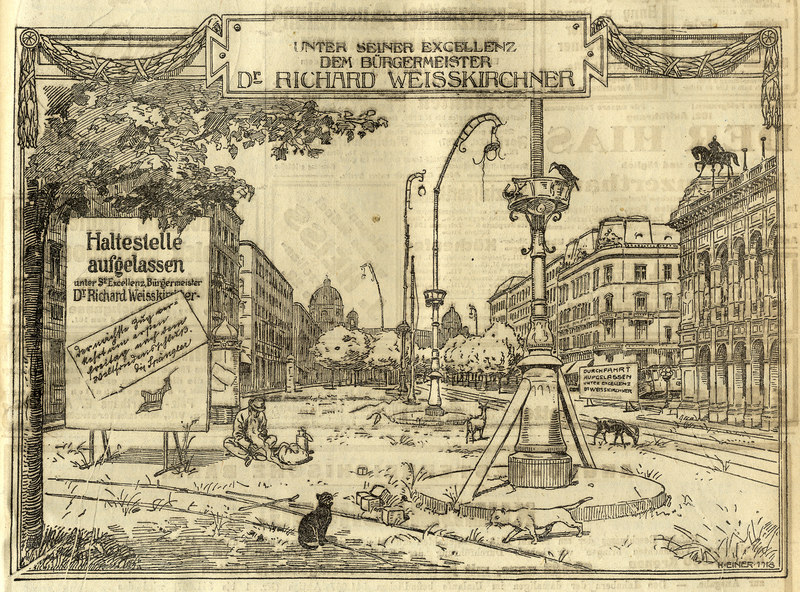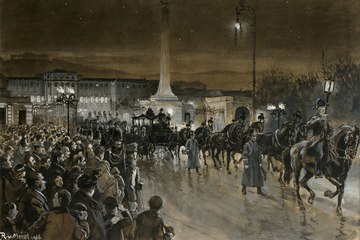
“Traffic at the Vienna Opera House crossroads”, caricature from Der Morgen (issue of 19 August 1918)
The caricature addresses the huge restrictions on urban life when the effects of the war became apparent in the Vienna city scene. The busiest crossroads in Vienna is shown here – satirically exaggerated – as a wilderness empty of people and overgrown with weeds.
Copyright
Wienbibliothek im Rathaus


